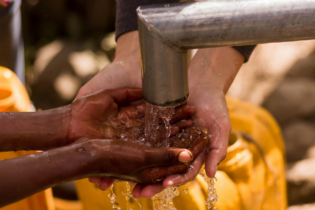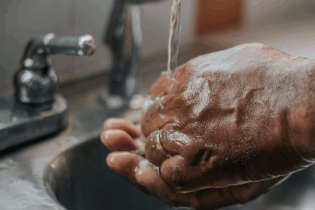Many EU-backed sanitation and water projects in sub-Saharan Africa are unsustainable because of missing technical and financial support, says a new financial audit of more than 20 development projects.
A report by the European Court of Auditors says investments worth millions of euros in six African countries are at risk because many of the projects lack the maintenance and revenues to sustain future operations. “For a majority of projects, resulting benefits will not continue to flow in the medium and long term unless non-tariff revenue is insured or because of institutional weaknesses,” David Bostock, a member of the court, told journalists at the release of the audit on 28 September.The auditors reviewed 23 projects in Angola, Benin, Burkina Faso, Ghana, Nigeria and Tanzania. They found that fewer than half the water and sanitation projects were meeting the needs of beneficiaries. Those nations account for some €320 million of the €1 billion spent by the European Commission from 2001 to 2010 to improve water and sanitation in the Sub-Saharan Africa. The EU is collectively the largest aid donor, providing €54 billion, or 56% of the total in 2010, according to the Organisation for Economic Cooperation and Development. Nearly one-third of the €5.9 billion spent for drinking water and latrines comes from the EU, with Sub-Saharan Africa receiving 28% followed by South Asia with 19%.
Amongst the findings of the Luxembourg-based court:
• Four of 23 projects reviewed by the auditors generated enough revenue from tariffs to cover operations;
• Three were funded with government aid or other resouces;
• For the remaining 16 projects, there were “no formal commitments” to support infrastructure beyond installation.
• Boreholes paid for by the EU were no longer functioning or in poor working condition;
• Water pumping stations in some cases built without sufficient electricity to run the pumps.
• Critics seized on the audit to call for better management of EU funds.
• “This stinging rebuke must act as a wake-up call for the Commission,” said British
• Andris Piebalgs, the European commissioner for overseas development, acknowledged that there “is no room for complacency and there is always a need for improvement.”
• But Piebalgs added that many of the projects reviewed by the auditors began before the EU imposed stricter monitoring guidelines to ensuring long-term viability of development aid. Piebalgs last year unveiled a plan to revamp EU aid – the so-called Agenda for Change – to focus more spending on the least developed countries and on water and energy needs. Source: euractiv.com






